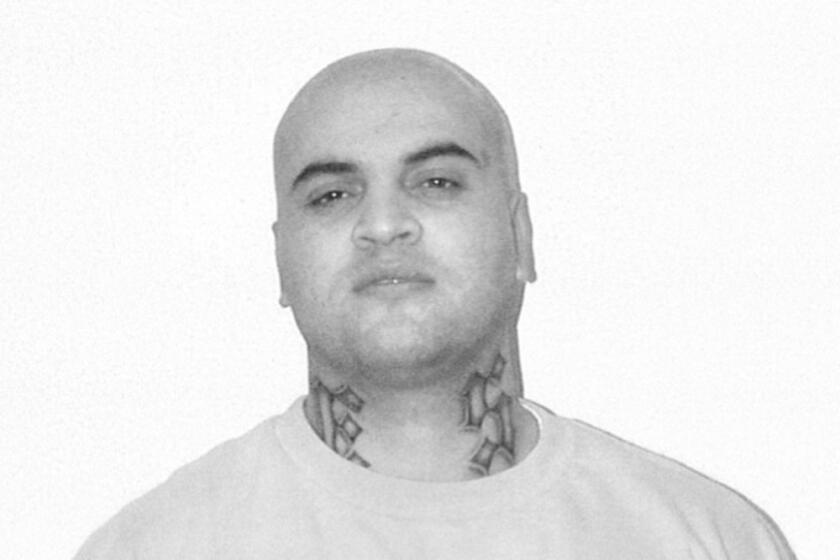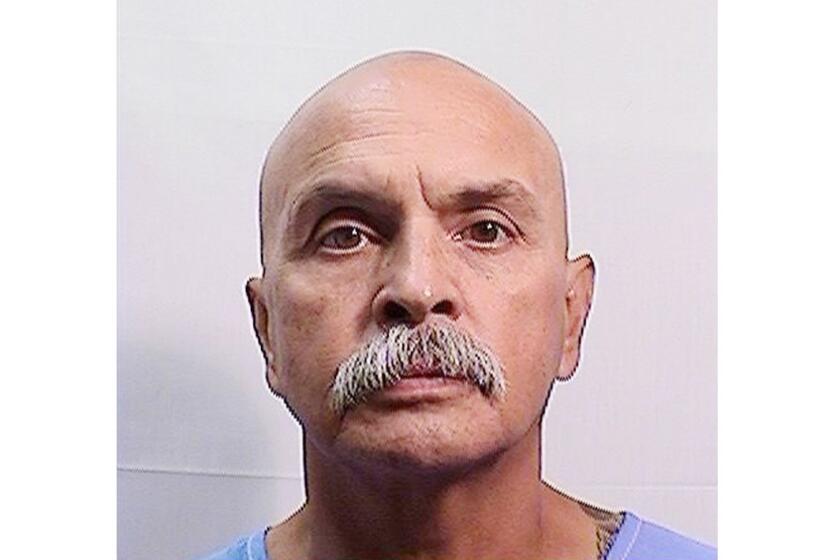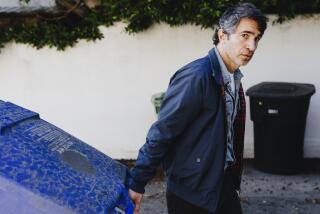Mafia boss who eluded authorities for decades dies in hospital months after capture
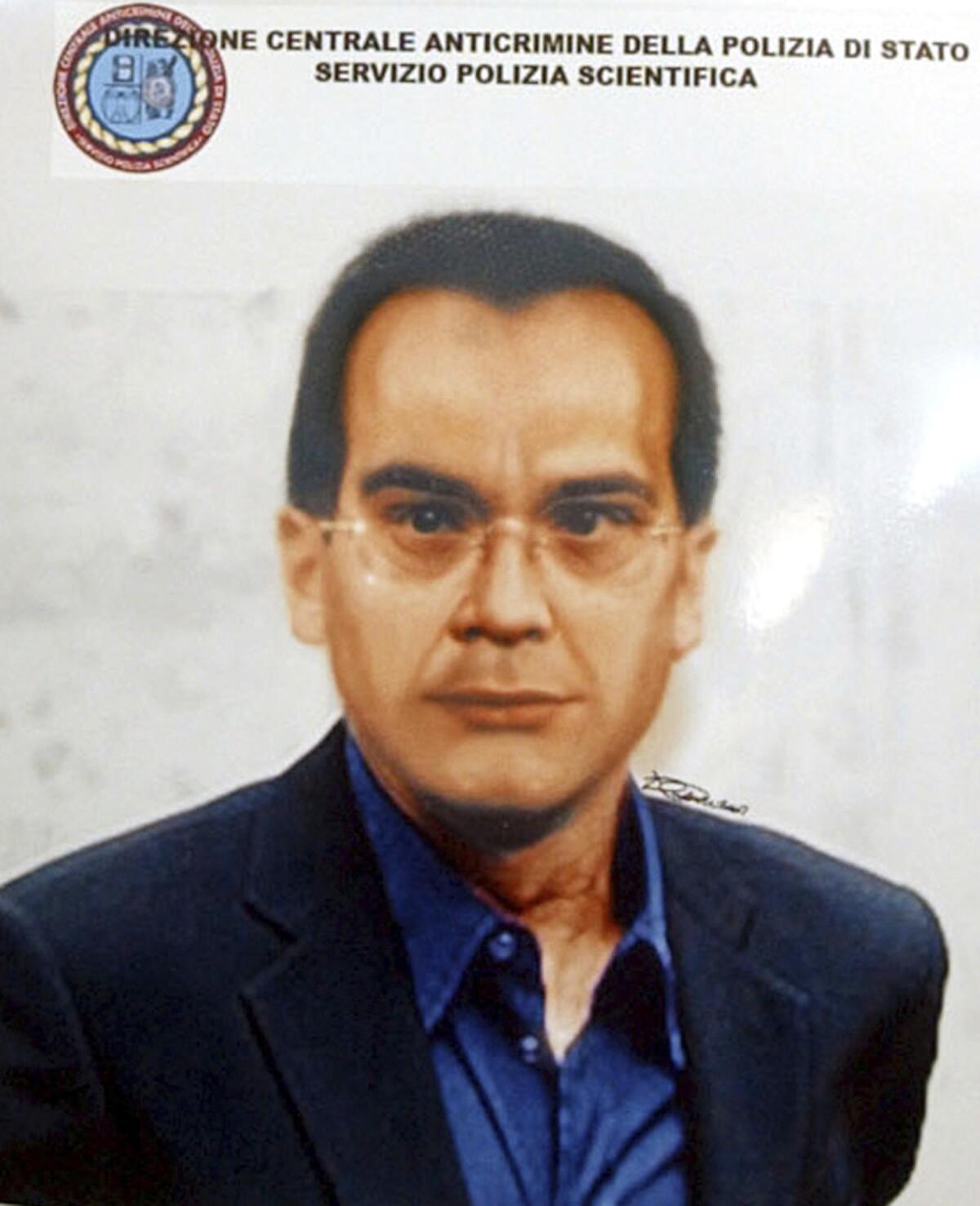
- Share via
ROME — Matteo Messina Denaro, the convicted mastermind of some of the Sicilian Mafia’s most heinous slayings, died Monday in a hospital ward, several months after being captured as Italy’s No. 1 fugitive following decades on the run, Italian state radio said.
RAI state radio, reporting from L’Aquila hospital in central Italy, said the heavy police detail that had been guarding his hospital room moved to the hospital morgue after Messina Denaro’s death about 2 a.m. Doctors had said he had been in a coma since Friday.
Reputed by investigators to be one of the Mafia’s most powerful bosses, Messina Denaro, 61, had been living as a fugitive in western Sicily, his stronghold, during at least much of his 30 years of eluding law enforcement, thanks to the help of townspeople. His need for colon cancer treatment led to his capture Jan. 16, 2023.
Investigators were on his trail for years and had discovered evidence that he was receiving chemotherapy as an outpatient at a Palermo clinic under an alias. Digging into Italy’s national health system data base, they tracked him down and took him into custody when he showed up for a treatment appointment.
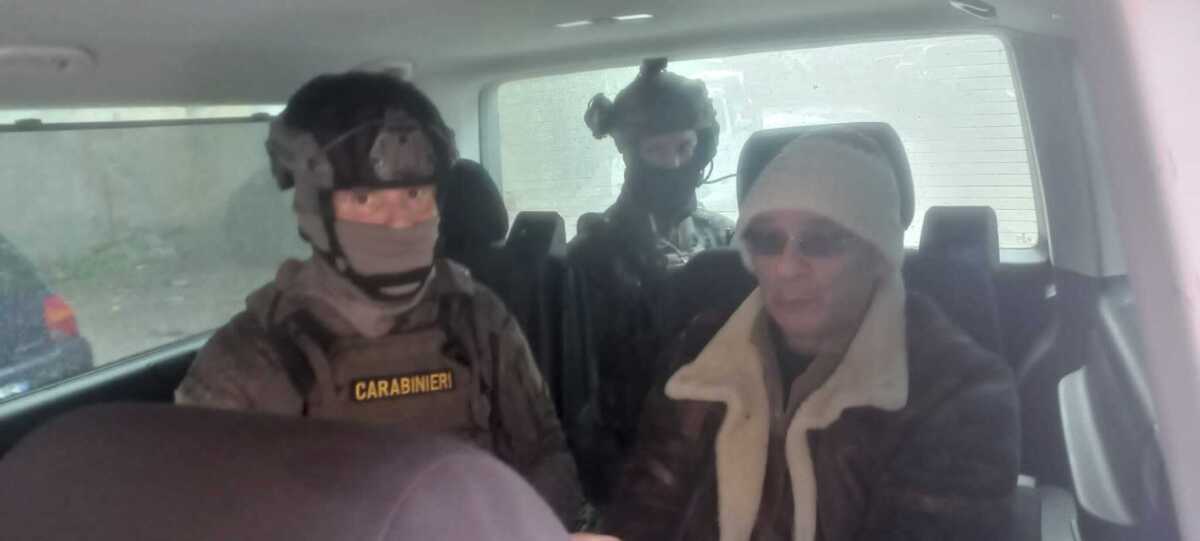
His arrest came 30 years and a day after the Jan. 15, 1993, capture of the Mafia’s “boss of bosses,’’ Salvatore “Toto” Riina, in a Palermo apartment, also after decades in hiding. Messina Denaro went into hiding later that year.
While a fugitive, Messina Denaro was tried in absentia and convicted of dozens of murders, including helping to plan, along with other Cosa Nostra bosses, a pair of 1992 bombings that killed Italy’s leading anti-Mafia prosecutors, Giovanni Falcone and Paolo Borsellino.
Martin Madrigal Cazares, who reputedly controlled gangs in Ventura County from Mexico, was gunned down this month in Baja California, authorities say.
Prosecutors had hoped in vain he would collaborate with them and reveal Cosa Nostra secrets. But according to Italian media reports, Messina Denaro made clear he wouldn’t talk immediately after capture.
When he died, “he took with him his secrets” about Cosa Nostra, state radio said.
After his arrest, Messina Denaro began serving multiple life sentences in a top-security prison in L’Aquila, a city in Italy’s central Apennine mountain area, where he continued to receive chemotherapy for colon cancer. But in the last several weeks, after undergoing two surgeries and with his condition worsening, he was transferred to the prison ward of the hospital where he died.
His silence hewed to the examples of Riina and of the Sicilian Mafia’s other top boss, Bernardo Provenzano, who was captured in a farmhouse in Corleone, Sicily, in 2006, after 37 years in hiding — the longest time on the run for a Mafia boss. Once Provenzano was in police hands, the state’s hunt focused on Messina Denaro, who managed to elude arrest despite numerous reported sightings of him.
A terminally ill Mexican Mafia member expounded on the current state of the gang from his prison cell before he was released to die at home.
Dozens of lower-level Mafia bosses and foot soldiers did turn state’s evidence following a crackdown on the Sicilian syndicate sparked by the assassinations of Falcone and Borsellino, bombings that also killed Falcone’s wife and several police bodyguards. Among Messina Denaro’s multiple murder convictions was one for the slaying of the young son of a turncoat. The boy was abducted and strangled, and his body was dissolved in a vat of acid.
Messina Denaro was also among several Cosa Nostra top bosses who were convicted of ordering a series of bombings in 1993 that targeted two churches in Rome, the Uffizi Galleries in Florence and an art gallery in Milan. A total of 10 people were killed in the Florence and Milan bombings.
The attacks in those three tourist cities, according to turncoats, were aimed at pressuring the Italian government into easing rigid prison conditions for convicted mobsters.
When Messina Denaro was arrested, Palermo’s chief prosecutor, Maurizio De Lucia, declared: “We have captured the last of the massacre masterminds.”
More to Read
Sign up for Essential California
The most important California stories and recommendations in your inbox every morning.
You may occasionally receive promotional content from the Los Angeles Times.
